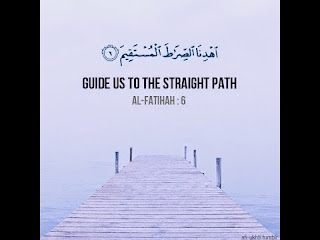Jummah
“The best day during which the sun has risen is Friday. It is the Day Adam was created. It is the day when Adam entered paradise and also when he was taken out from it. It is also the day on which the Day of Judgment takes place.” (Muslim)
"And when the prayer has been concluded, disperse within the land and seek from the bounty of Allah, and remember Allah often that you may succeed.
And when the prayer has been concluded, disperse within the land and seek from the bounty of Allah, and remember Allah often that you may succeed."(Surah Jummah: 9-10)
Visiting sick, giving charity, discovering what people do these days, helping each other, it is a necessary thing Muslims should do instead of sleeping in this day. In the Verse above, the word 'Fazl' is used meaning 'bounty' or 'reward' of Allah. What Allah meant by this verse is that Muslims should visit those who need others help and do what they can. It can be visiting sick, or like cleaning someone's house who is alone and needy, like Abu Bakr used to do, and helping widows and poor, just like Prophet used to do. Friday is the day when Muslim community can be united, so, Muslims should prevent thinking this day as a normal day. We often think of Ramazan being the month where Muslims can come close to Allah, but it is not the case, it is every day and so it is also Friday. Muslims should be especially work for others in this day.
10 things, must be done in the day of Jummah:
- Taking bath and purify oneself completely by observing Ghusl (grand ablution). Narrated by Abdullah bin Umar (R.A) said: “I heard the Messenger of Allah, pbuh say: ‘When one of you wants to come to Jumu’ah, let him perform Ghusl.” (Muslim)
- “I testify that Allah’s Messenger (PBUH) said: “The taking of bath on Friday is compulsory for every Muslim who has attained the age of puberty; and also cleaning of teeth with Siwak and using perfume, if available.” (Bukhari)
- Walking towards the mosque, as it results in attainment of blessings on one step and forgiveness of sins on another. Abu Hurrairah (R.A) described Hazrat Muhammad (PBUH) speaking as:“He who purifies (performs Wudu’) himself in his house and then walks to one of the houses of Allah (mosque) for performing an obligatory Salat, one step of his will wipe out his sins and another step will elevate his rank (in Jannah).” (Muslim)
- Reaching masjid as early as possible, especially before the Sermon. “On the day of Jummah, the angels stand at the entrance of that Masjid in which Jummah salaat is to be offered. They write down the name of the person who enters the Masjid first, and thereafter the name of the person who follows, and they continue doing this. The person who entered first will receive the reward of sacrificing a camel in the path of Allah; the one who followed him will get the reward of sacrificing a cow, thereafter a chicken, thereafter the reward of giving an egg as charity in the path of Allah.Once the khutbah commences, the angels close the register and begin listening to the khutbah. “(Muslim and Bukhari)
- Sitting as closely to Imam as possible to benefit from its lecture, since Angels too listen to it carefully. “Because when the Imam comes out (to deliver Khutbah), the angles come to listen to the Dhikr.” (Bukhari)
- Listening attentively to Khutba (Sermon)“Whoever says to his friend while Imam is delivering Khutbah on Friday “keep quiet” also commit absurdity.” (Muslim and Bukhari)
- Reciting Surah Al-Kahf on this day. Abu Sa’eed al-Khudri (R.A) narrated a Hadith as:“Whoever reads Soorat al-Kahf on the night of Jumu’ah, will have a light that will stretch between him and the Ancient House (the Ka’bah).” (Al-Daarimi)
- Sending lots of blessings on Hazrat Muhammad (PBUH) in the form of Durood. “Recite Durood upon me in abundance on the day of Jummah since they are presented to me.” (Ibn Majah)
- Supplicating to Allah for His mercy constantly. Abu Hurrairah narrated Prophet (PBUH) stating as:“On this day there is a time when no Muslim stands and prays, asking Allah for something, but Allah will grant him it” – and he gestured with his hands to indicate how short that time is. [Bukhari 893 Muslim, 852]










